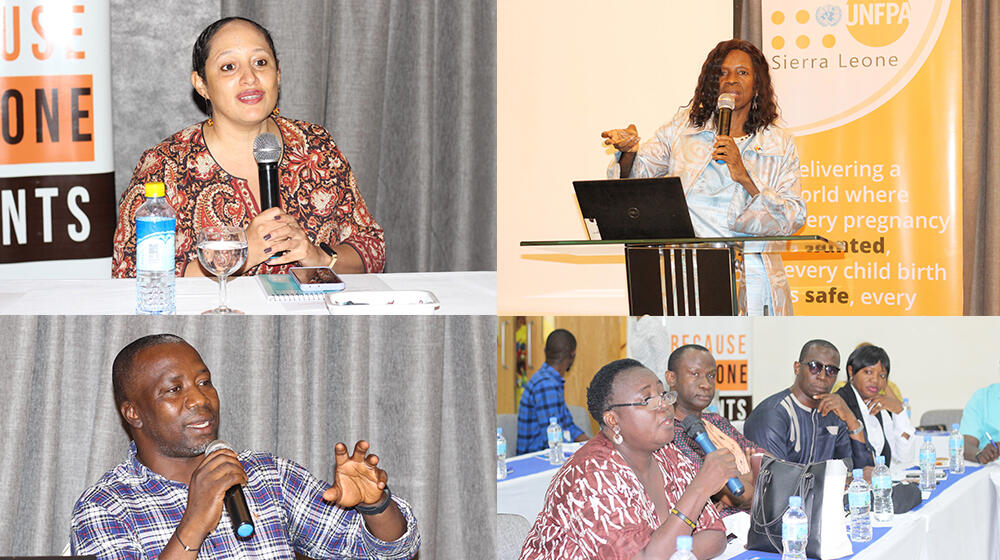Freetown, Sierra Leone, 29 February, 2024 - The United Nations Population Fund (UNFPA) is currently developing its eighth country programme (2025-2030), which forms the foundation for delivering on the organization’s mission of ensuring that every pregnancy is wanted, every child birth is safe, and every young person’s potential is fulfilled.
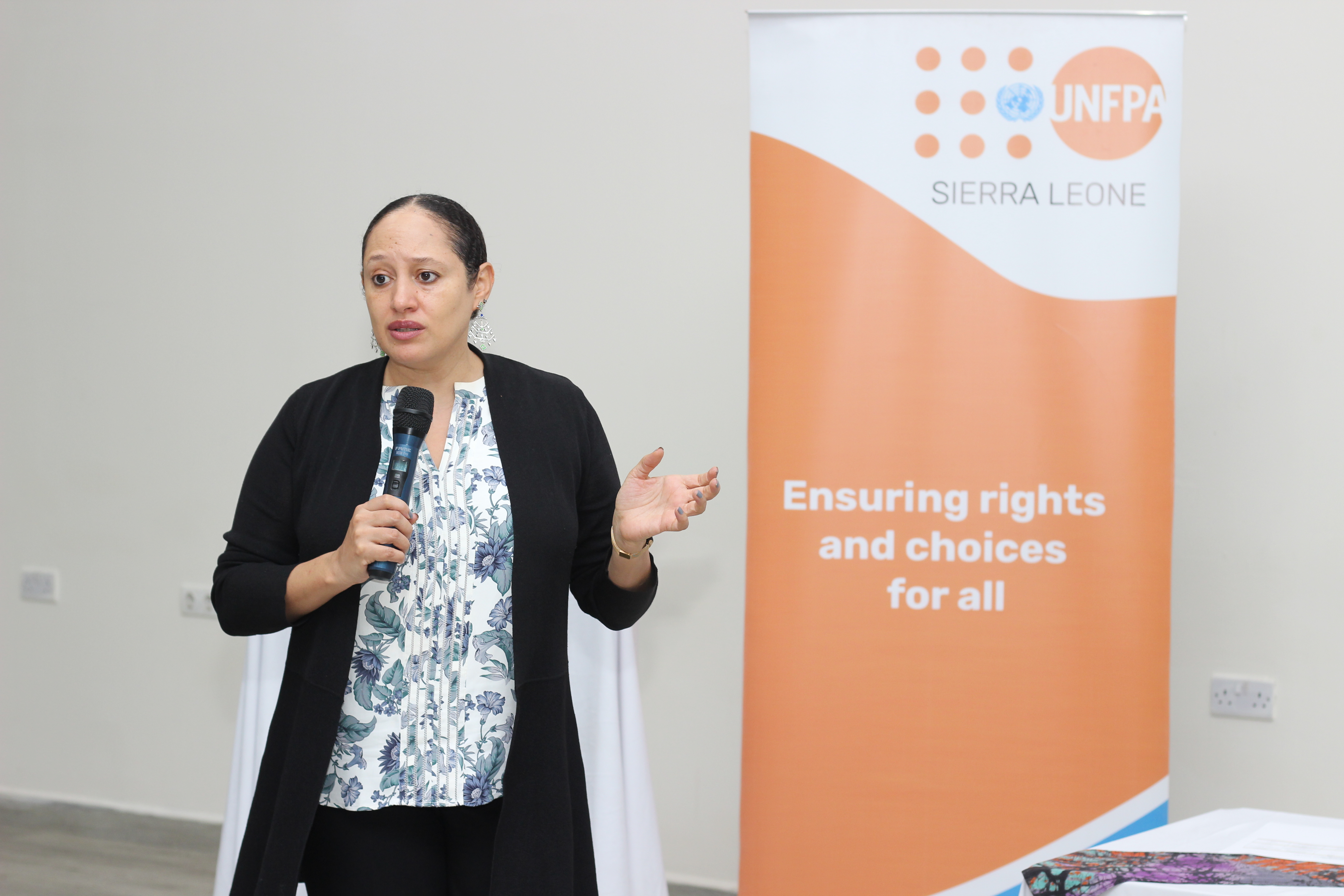
In collaboration with the Ministry of Planning and Economic Development, UNFPA convened thematic consultations on 15-16 February and a high-level development partners’ consultation on 22 February, to engage with key stakeholder on building a consensual vision for the new Country Programme. Participants included representatives from government ministries, departments and agencies, implementing partners, civil society organizations, UN agencies, youth-led organizations and donor governments.
The high-level development partners’ consultation was co-chaired by the Minister of Planning and Economic Development, Ms. Kenyeh Barlay, and the UNFPA Representative, Ms. Nadia Rasheed, and supported by the Minister of Youth Affairs, Mr. Mohamed Orman Bangura.
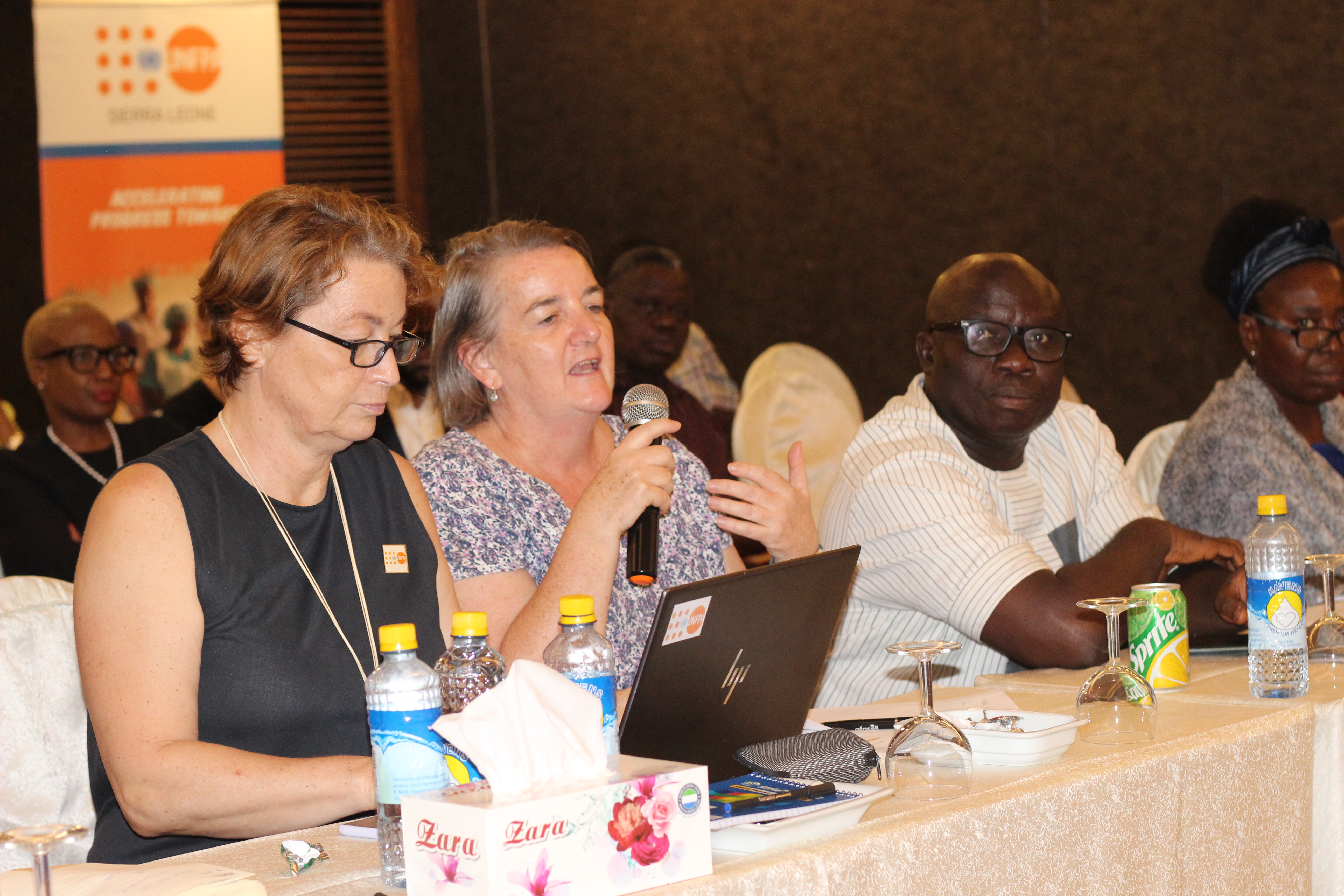
Speaking at the consultation, Minister Barlay highlighted that the development of the new UNFPA Country Programme supports the implementation of Sierra Leone's Medium-Term National Development Plan, in line with the UN Sustainable Development Cooperation Framework (2025-2030). She welcomed the consultation as an opportunity to discuss critical areas that UNFPA will prioritize for the next six years, and added that there was no better way to achieve this than by gathering all implementing partners and other pertinent stakeholders through an inclusive approach.
“I am confident that this high-level consultation will yield fruitful discussions and innovative ideas that will shape the new country program. Let us seize this opportunity to make a lasting impact on the lives of our people and pave the way for a prosperous Sierra Leone,” Minister Barlay stated.
Also speaking at the high-level consultations, the Minister of Youth Affairs, Mr. Mohamed Orman Bangura, applauded UNFPA for consistently including line ministries in their planning processes and urged stakeholders to build on the successes and gains already made by UNFPA and its partners. He noted that the new UNFPA Country Programme will help to advance the vision of Youth 2030, the UN Youth Strategy which Sierra Leone prioritizes.
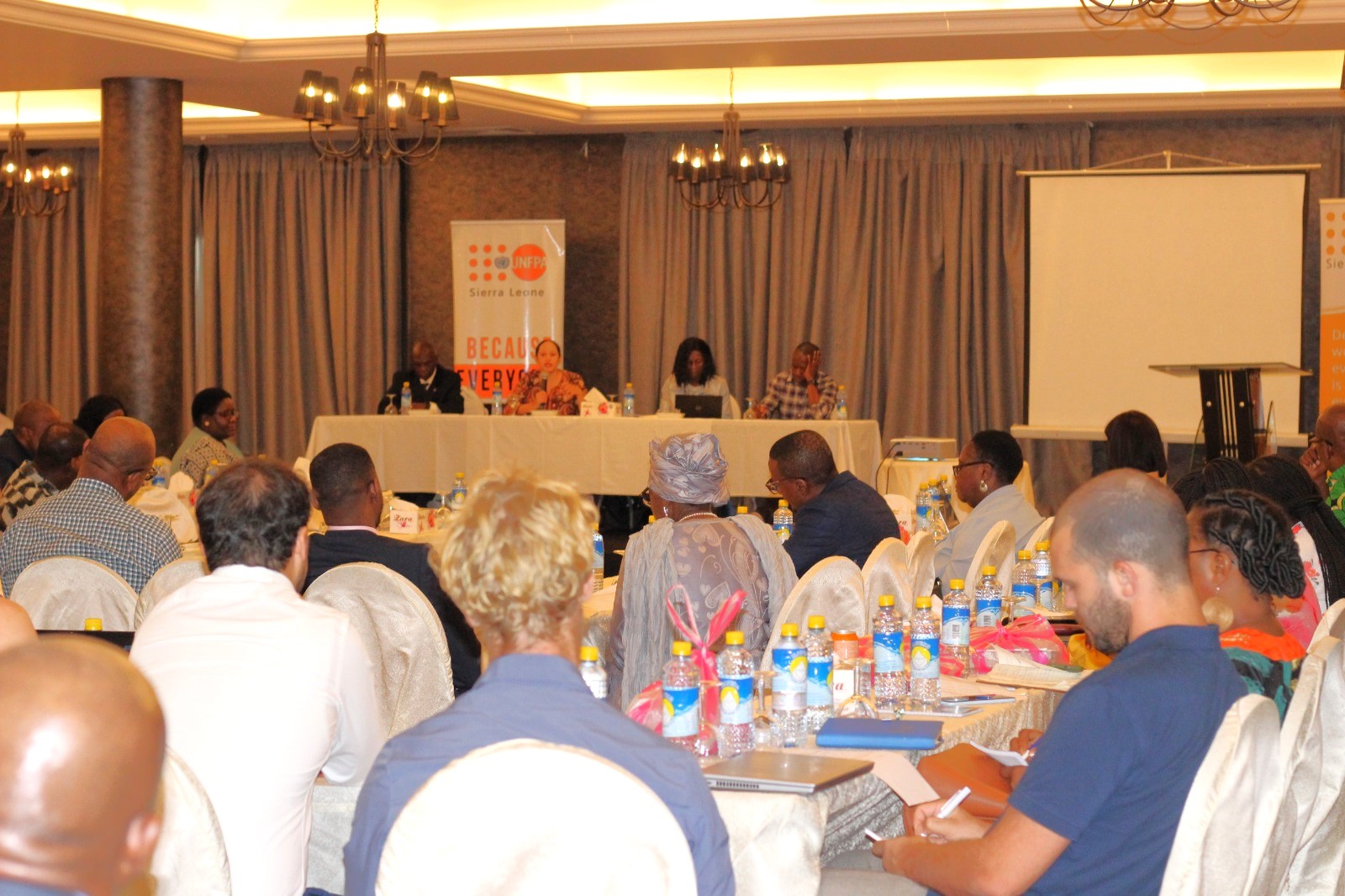
He emphasized that the Government prioritizes empowerment and engagement of youth, as demonstrated through the inclusive participation of young people in the consultation process leading to the conceptualization of the country’s Medium-Term National Development Plan. He also highlighted the importance of responding to gender-based violence, one of the major problem affecting society, stating “when designing the new Country Programme, we should ensure that efforts to address gender-based violence including teenage pregnancy are community owned, and that youth organizations led by women and girls are supported at the community level so that their voices are heard.”
In her statement, UNFPA Representative, Ms. Nadia Rasheed, stated that the consultations were a platform to jointly consider progress made in achieving UNFPA’s transformative results, build consensus on strategic priorities for the new Country Programme, and ensure effective collaboration and synergies with partners and stakeholders.
Ms. Rasheed highlighted key achievements through collaborative efforts of UNFPA and partners, including the training of more than 1,700 midwives since 2010, which has contributed to a significant reduction in maternal mortality, and provision of over 90% of family planning commodities in the public sector which has prevented thousands of unintended pregnancies, unsafe abortions and maternal deaths. She also noted contributions to the national response to gender-based violence through support to the operations of GBV one-stop centres and large-scale efforts to address child marriage through the UNFPA-UNICEF Global Programme on Ending Child Marriage.
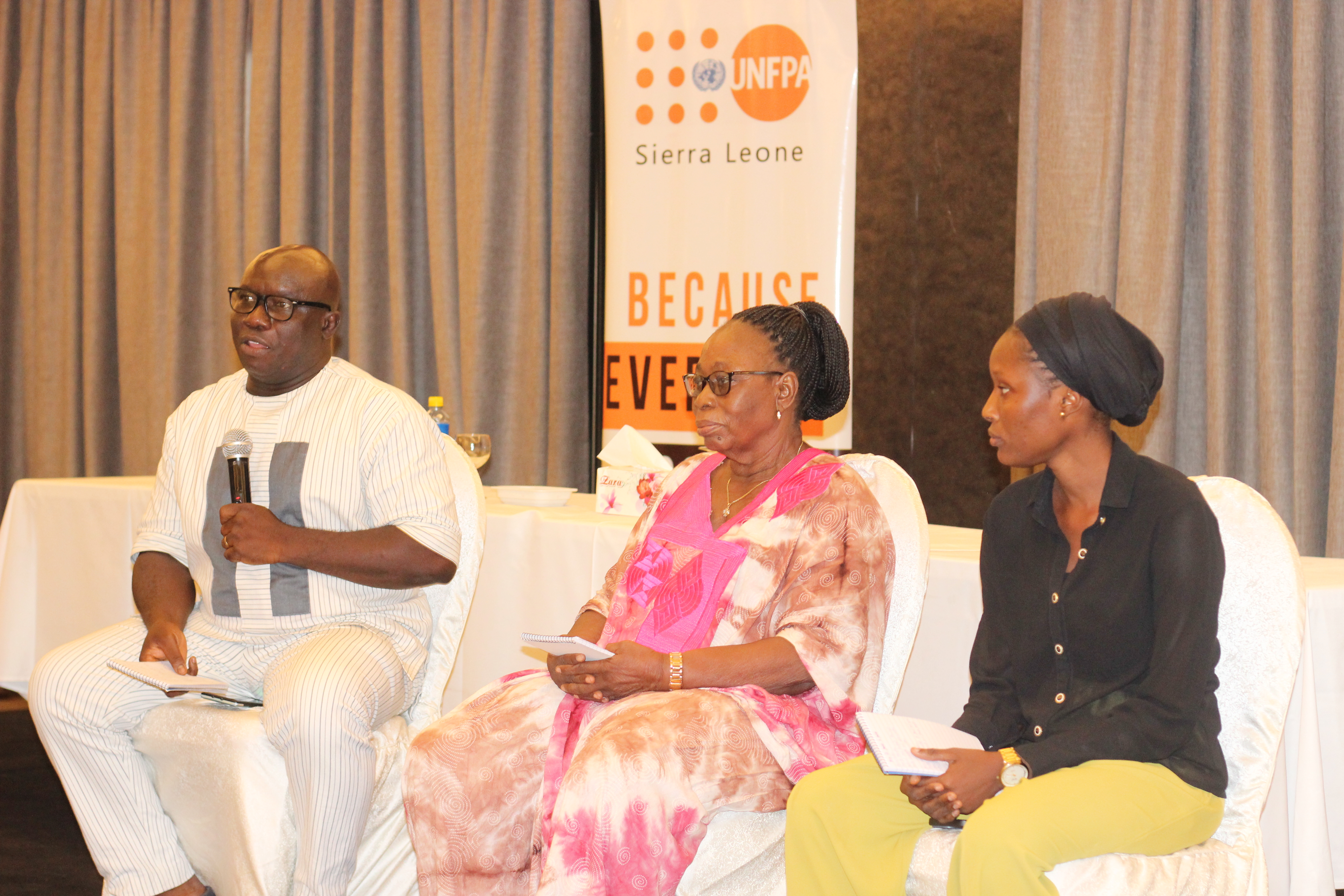
Reflecting on the engagements, Ms. Patricia Bah, National Coordinator for the National Secretariat for the Reduction of Teenage Pregnancy said that “the eighth country programme is giving priority to the issues of Teenage Pregnancy and Child Marriage, adolescent and youth empowerment, their autonomy, GBV and harmful traditional practices all of which are in line with the country’s Medium-Term National Development Plan.”
Young people shared their reflections on progress made in implementing UNFPA’s current Country Programme, including by empowering young people to make informed decision and supporting persons with disabilities. Speaking at the consultations, Hannah Kargbo, the chair of the UN Youth Advisory Group commended UNFPA for actively including young people in dialogues and consultations, and ensuring that their voices are heard.
Mr. Musa Khalil-Koroma, founder and executive director of the Global Youth Network for Equality and Development, remarked that "UNFPA's continued commitment to engaging and empowering adolescents and youth should not just be a strategic priority, but a moral imperative to scale-up investment in the health and rights of adolescents and young people, to unlock their full potential to lead and drive positive change and create a more inclusive and sustainable future for all."

